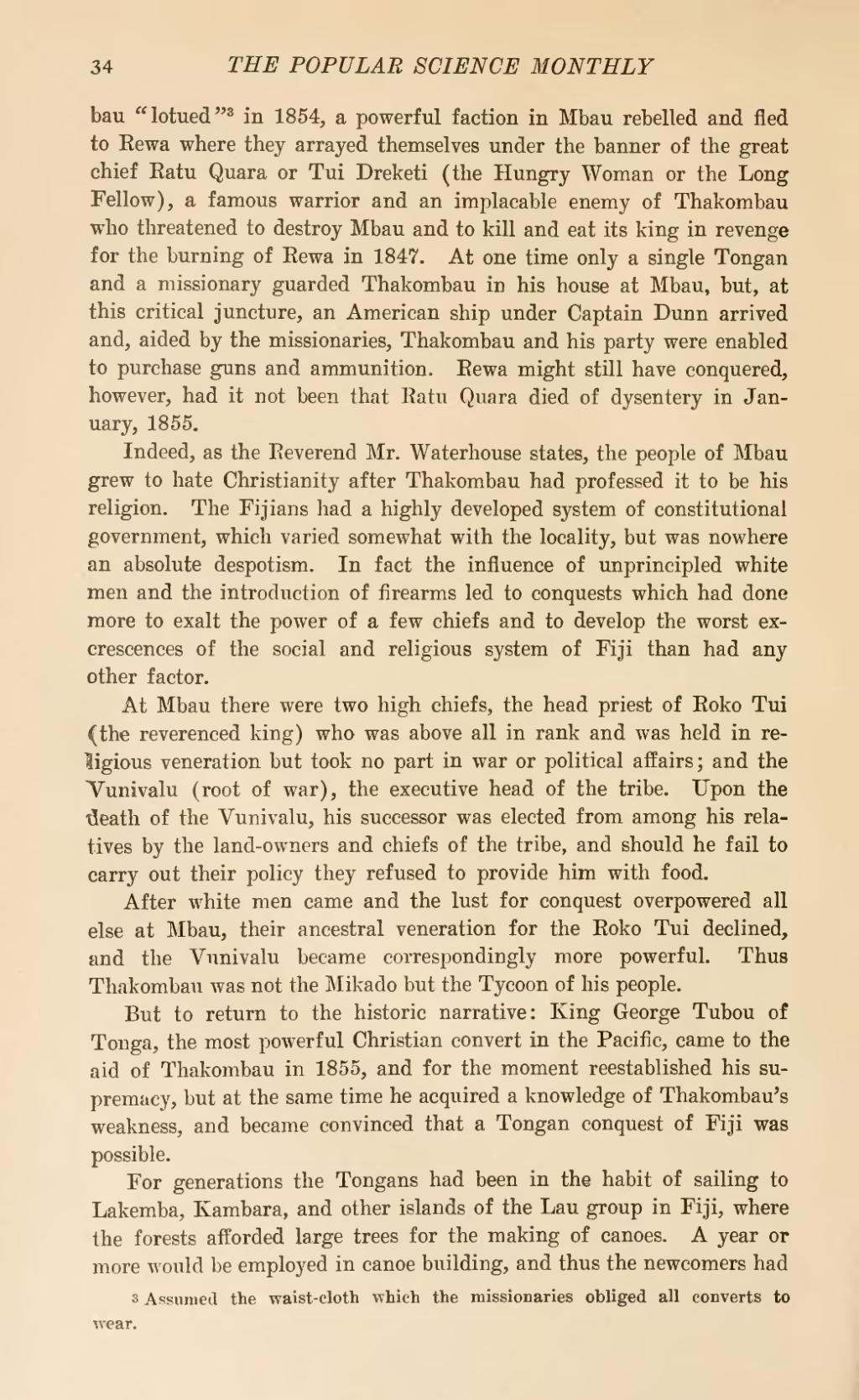bau "lotued"[1] in 1854, a powerful faction in Mbau rebelled and fled to Rewa where they arrayed themselves under the banner of the great chief Ratu Quara or Tui Dreketi (the Hungry Woman or the Long Fellow), a famous warrior and an implacable enemy of Thakombau who threatened to destroy Mbau and to kill and eat its king in revenge for the burning of Rewa in 1847. At one time only a single Tongan and a missionary guarded Thakombau in his house at Mbau, but, at this critical juncture, an American ship under Captain Dunn arrived and, aided by the missionaries, Thakombau and his party were enabled to purchase guns and ammunition. Rewa might still have conquered, however, had it not been that Ratu Quara died of dysentery in January, 1855.
Indeed, as the Reverend Mr. Waterhouse states, the people of Mbau grew to hate Christianity after Thakombau had professed it to be his religion. The Fijians had a highly developed system of constitutional government, which varied somewhat with the locality, but was nowhere an absolute despotism. In fact the influence of unprincipled white men and the introduction of firearms led to conquests which had done more to exalt the power of a few chiefs and to develop the worst excrescences of the social and religious system of Fiji than had any other factor.
At Mbau there were two high chiefs, the head priest of Roko Tui (the reverenced king) who was above all in rank and was held in religious veneration but took no part in war or political affairs; and the Vunivalu (root of war), the executive head of the tribe. Upon the death of the Vunivalu, his successor was elected from among his relatives by the land-owners and chiefs of the tribe, and should he fail to carry out their policy they refused to provide him with food.
After white men came and the lust for conquest overpowered all else at Mbau, their ancestral veneration for the Roko Tui declined, and the Vunivalu became correspondingly more powerful. Thus Thakombau was not the Mikado but the Tycoon of his people.
But to return to the historic narrative: King George Tubou of Tonga, the most powerful Christian convert in the Pacific, came to the aid of Thakombau in 1855, and for the moment reestablished his supremacy, but at the same time he acquired a knowledge of Thakombau's weakness, and became convinced that a Tongan conquest of Fiji was possible.
For generations the Tongans had been in the habit of sailing to Lakemba, Kambara, and other islands of the Lau group in Fiji, where the forests afforded large trees for the making of canoes. A year or more would be employed in canoe building, and thus the newcomers had
- ↑ Assumed the waist-cloth which the missionaries obliged all converts to wear.
